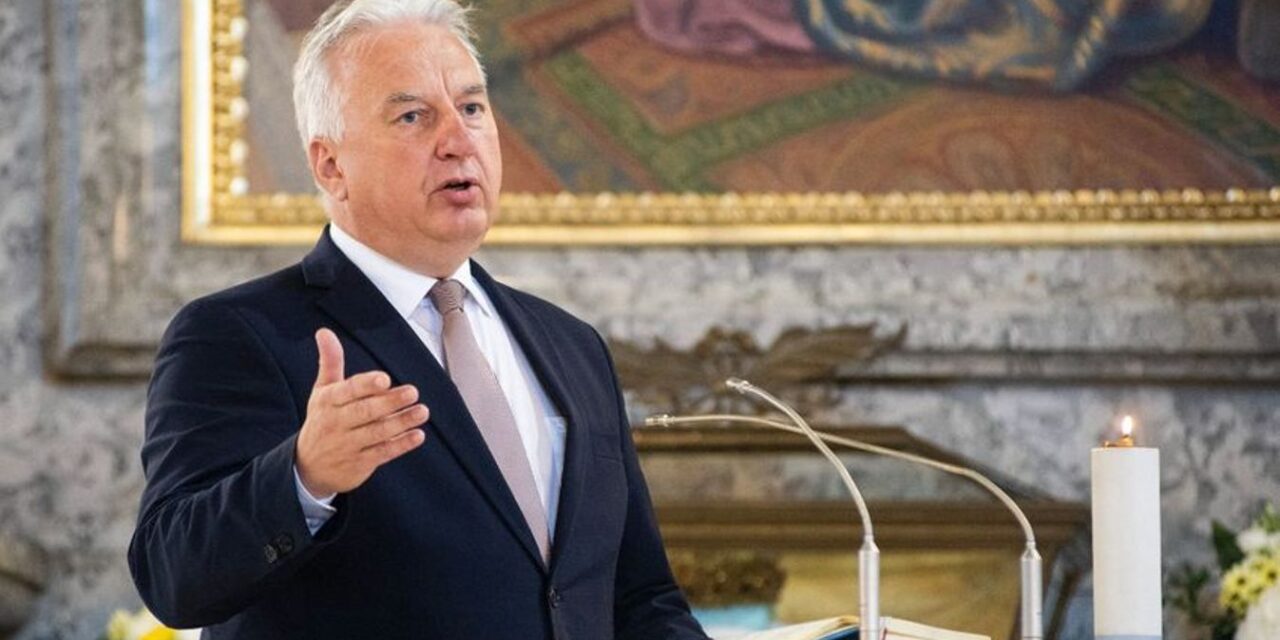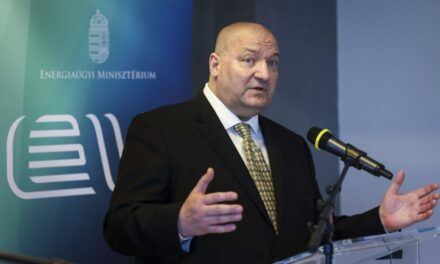Zsolt Semjén called the recent church scandals repulsive and inexcusable.
Zsolt Semjén said at the Budapest conference of the Association of Christian Intellectuals (KÉSZ) on Saturday: what is repulsive is repulsive, what is indefensible is indefensible, a serious sin is a serious sin and this should not be relativized by the fact that fragments of such events in the church are similar in the world crimes occurring in institutions.
Neither sin is acceptable, it is scandalous and seriously harms the church
- He told.
It is also important to reflect on it, not to shyly listen: first of all, it must be recognized that what is terrible is terrible, what is repulsive is repulsive and what is indefensible is indefensible.
At the same time, Zsolt Semjén suggested that it is
Shouldn't enemies and critics of the church who propagate gender ideology be told "Welcome to the club"?
The president of the KDNP put it this way: the double life, eye-rolling is repulsive, all of this is a serious crime. There is only one sin more serious than this, if someone is even proud of it.
When they turn their own deviant life situation into a political ideology and call it pride. The biggest sin that exists is when someone calls bad good and good bad, he said, underlining that this is where the "watershed" lies.
He also touched on the fact that the church is not the church of saints, but also of sinners. The church is holy because Jesus Christ is holy, not because each of its members is holy. At the same time, he noted that the church is embellished by the saints at all times.
Zsolt Semjén put it this way: the Pythagorean theorem is true even if the math teacher is an alcoholic. The gospel of Jesus Christ is valid even if the priest is drunk or guilty.
The president of the KDNP also spoke about the duty of the whole and every part of the Hungarian state to protect our identity and Christian civilization, and this was also recorded in the Basic Law of Hungary.
He pointed out: In Hungary, the state and the church operate separately from each other. Churches do not exercise a public authority function, and the state does not interfere in sacred matters. He emphasized: the separation of state and church cannot mean the separation of church and society. We are both members of our church and citizens of the Hungarian country. The way forward is the harmonious cooperation of the two for the benefit of the whole society, he said.
The essence of the Hungarian church political model is the cooperation between the state and the church for the benefit of society as a whole, he explained, adding: in the relationship between the state and the church, no hierarchy is acceptable, only strict juxtaposition, and this is happening in Hungary. He also went on to say that the notion that the church should keep an equal distance from different political views is a complete misunderstanding, because the church does not "move" in relation to the parties, but on the contrary, the parties in relation to the church, and the church cooperates to the extent that if the given party represents Christian values.
The Christian Democrats do not expect the church to be close to them, but they undertake to try to represent the social teaching of the church, thus they are close to the church - pointed out Zsolt Semjén.
According to him, if the church's social teaching can be doubted, then the political party representing Christian values has no public legitimacy. And if they can be pushed out, then there is no one to represent the church's social teaching and the church is forced back into its sacristy
he underlined.
He also said that whoever takes a political role and participates in public life must be fair and efficient. If someone is not honest, then the moral stipulations not only cause damage to his party or himself, but also to Christianity and the preaching of the Gospel.
At the same time, he noted: if someone is attacked, it does not necessarily mean that he is not honest, but that he represents Christian values and interests so effectively that it is worth attacking him by anti-church forces.
István Jakab, the Vice-President of the Parliament, emphasized in his greeting: Christianity, as the common heritage of the entire continent for the past two millennia, is a guide for us. Some people don't know about Christians or are outright against them, he added, and touched on the persecution of Christians and the disappeared public crosses throughout Western Europe.
He emphasized: if there were no Christians and Christian intellectuals, the world would completely lose its way. A world would come where everything is permitted, where there is no moral compass, the line between good and bad is blurred.
The basic values that once made Europe great are now in decline, the mention of the family, the nation, and Christianity is considered almost a curse word. He also touched on the fact that Hungary is standing firm in this storm and, as it has done for centuries, it is still protecting Christian values, the classic European way of life and culture. For them, the family is the basic unit of everything, without it there are no strong communities, nor cooperative nations, stated István Jakab.
Krisztián Péter Zachar, co-president of KÉSZ, reviewed the past 35 years of the organization, emphasizing that the message of the founding fathers is still clear and alive after 35 years, and that their mission, Christian community building, has not changed since then.
MTI
Featured image: MTI/Attila Balázs













